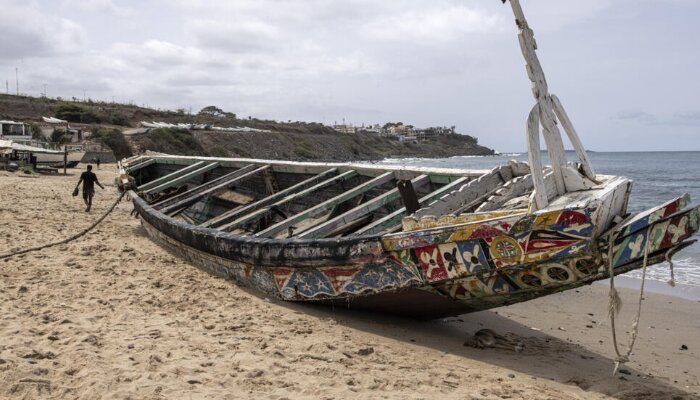At least 63 migrants feared dead at sea off Cape Verde coast

[ad_1]
More than 60 migrants are feared to have died after a boat carrying them from Senegal capsized in the Atlantic Ocean off Cape Verde. Senegal’s foreign ministry announced in a statement late on August 15 that 38 people, including children, have been recovered from the boat, which had 101 passengers on board when it departed Senegal on the 10th of July. The survivors were brought ashore on the island of Sal and some of them were on stretchers.
The exact time of the tragedy was not immediately known. According to the ministry, the survivors were on the Cape Verdean island of Sal, where Senegal is coordinating with the government to arrange for their repatriation.
The majority of individuals on board the vessel, which spent more than a month at sea are believed to be Senegalese. Some of the passengers also hail from Sierra Leone and one person was a native of Guinea-Bissau. Cape Verde officials have sought worldwide action on migration to help stop additional deaths. The container was reportedly first discovered on 14 August. It was found drifting, contrary to initial accounts that claimed it had sunk.
A Spanish fishing boat saw the wooden pirogue-style boat some 320 kilometres (200 miles) off Sal, in the Cape Verde islands and immediately contacted the authorities, according to the police. As noted by a representative for the International Organisation for Migration (IOM), the survivors include four adolescents between the ages of 12 and 16.
The boat had left from the Senegalese fishing town of Fass Boye. Nearly everyone on the boat had grown up in the area, as stated by elected official Moda Samb, who also pointed out that several local families were still awaiting word on whether their relatives were among the survivors.
The survivors are being cared for, mentioned Jose Moreira, a health officer on Sal, with an emphasis on rehydration and tests for ailments like malaria. Health Minister Filomena Goncalves said, “We know that migration issues are global issues, which require international cooperation, a lot of discussions and global strategy. We all, all the nations have to sit down at the table and see what we can do so that we don’t lose any more lives at sea, above all”
IOM spokeswoman Safa Msehli reckoned safe migration routes were “sorely lacking” and their absence provides “room for smugglers and traffickers to put people on these deadly journeys.” It’s possible that the survivors wound up in Cape Verde, but it wasn’t their original location. She added that IOM is collecting information and did not yet have details about the latest incident.
The archipelago is 600 kilometres (370 miles) off the coast of West Africa and is a major migratory route to the Canary Islands, a Spanish enclave that many people view as a gateway to the EU. It is one of the most perilous voyages a migrant might undertake, per the IOM.
Natasha Tsangarides, Associate Director of Advocacy at Freedom from Torture highlighted, “This devastating loss of life demonstrates the continued failure of Europe’s hostile approach to refugee protection.”
At least 67,000 migrants came to the Canary Islands between 2020 and 2023, while precise numbers are difficult to come by as is usual with irregular migration, over 2,500 people died during that time. The IOM emphasised that this number included all registered deaths. The actual number may be far higher given the route’s erratic and covert characteristics.
Poverty is frequently considered to be a significant issue to motivate people to leave their homes and take such a risky endeavour. Many people view migration to Europe as a way to a better life and to send money back home to help their families.
[ad_2]
Source link



